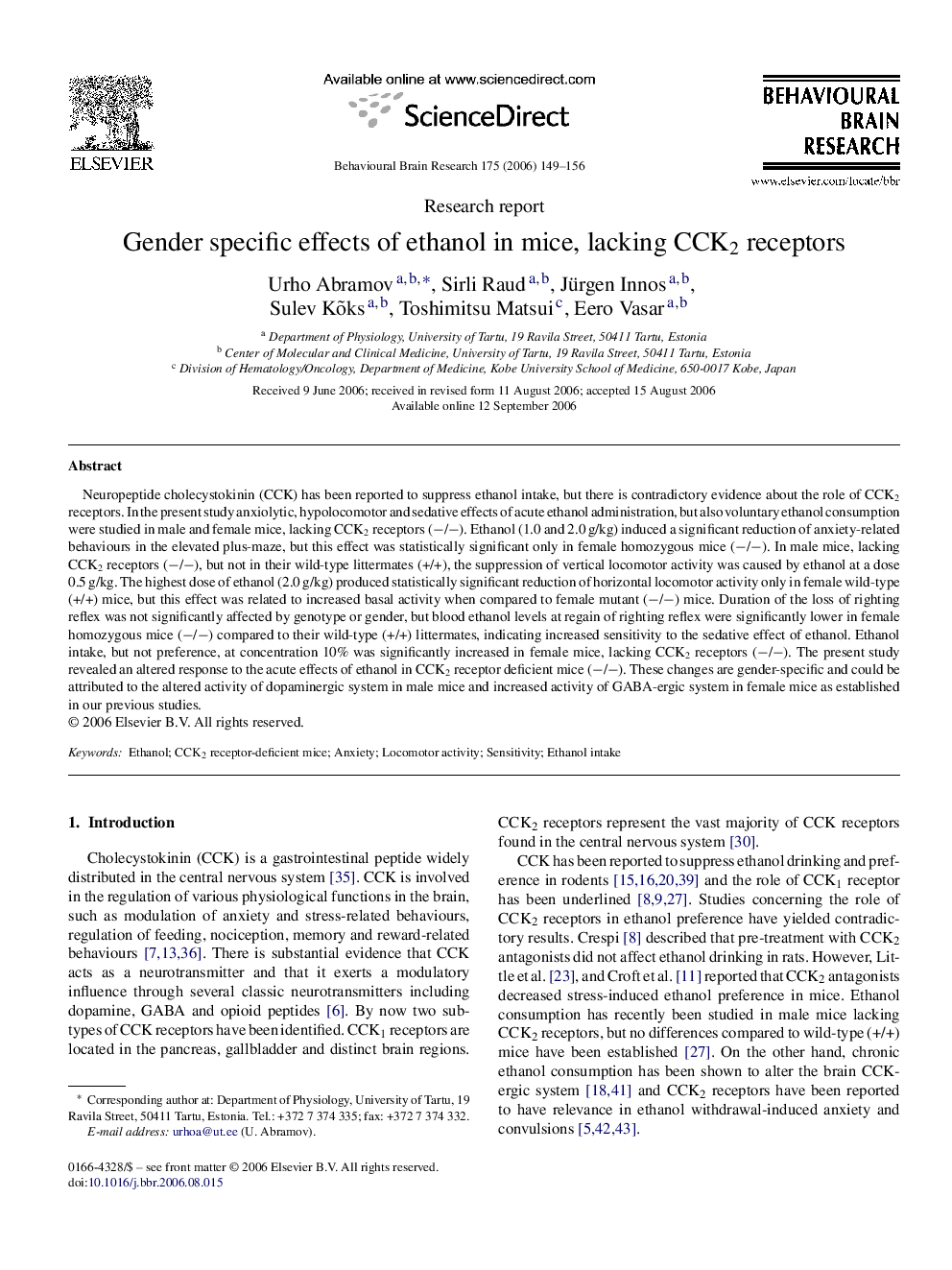| Article ID | Journal | Published Year | Pages | File Type |
|---|---|---|---|---|
| 4315939 | Behavioural Brain Research | 2006 | 8 Pages |
Abstract
Neuropeptide cholecystokinin (CCK) has been reported to suppress ethanol intake, but there is contradictory evidence about the role of CCK2 receptors. In the present study anxiolytic, hypolocomotor and sedative effects of acute ethanol administration, but also voluntary ethanol consumption were studied in male and female mice, lacking CCK2 receptors (â/â). Ethanol (1.0 and 2.0Â g/kg) induced a significant reduction of anxiety-related behaviours in the elevated plus-maze, but this effect was statistically significant only in female homozygous mice (â/â). In male mice, lacking CCK2 receptors (â/â), but not in their wild-type littermates (+/+), the suppression of vertical locomotor activity was caused by ethanol at a dose 0.5Â g/kg. The highest dose of ethanol (2.0Â g/kg) produced statistically significant reduction of horizontal locomotor activity only in female wild-type (+/+) mice, but this effect was related to increased basal activity when compared to female mutant (â/â) mice. Duration of the loss of righting reflex was not significantly affected by genotype or gender, but blood ethanol levels at regain of righting reflex were significantly lower in female homozygous mice (â/â) compared to their wild-type (+/+) littermates, indicating increased sensitivity to the sedative effect of ethanol. Ethanol intake, but not preference, at concentration 10% was significantly increased in female mice, lacking CCK2 receptors (â/â). The present study revealed an altered response to the acute effects of ethanol in CCK2 receptor deficient mice (â/â). These changes are gender-specific and could be attributed to the altered activity of dopaminergic system in male mice and increased activity of GABA-ergic system in female mice as established in our previous studies.
Related Topics
Life Sciences
Neuroscience
Behavioral Neuroscience
Authors
Urho Abramov, Sirli Raud, Jürgen Innos, Sulev Kõks, Toshimitsu Matsui, Eero Vasar,
